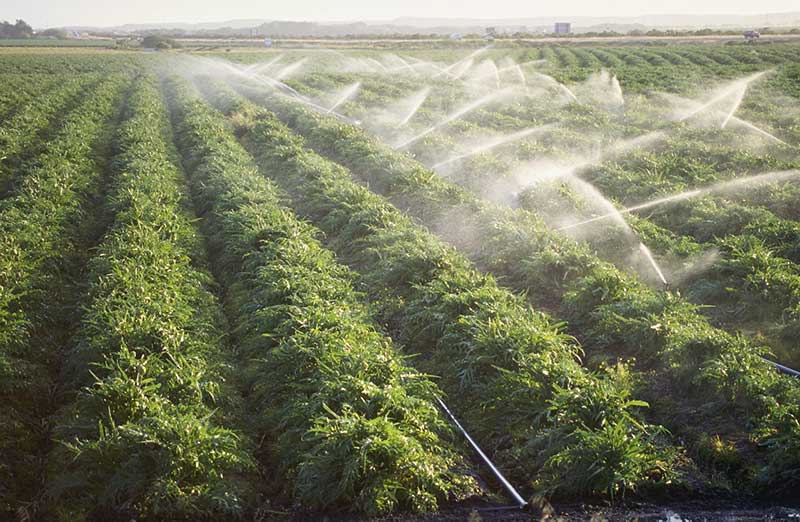- What is ‘The Internet of Things’?
- How will The Internet of Things change the transport sector?
- The Internet of Things 2020
Many commuters are affected by traffic congestion every day. You’re in your car, on your way to work. Suddenly the driver in front of you slams his brakes and before you know it you’re stuck in traffic. You lose valuable time and time is money. According to British regulator Ofcom, the Internet of Things will be solving the issue of traffic congestion within the next 10-30 years. Last week, Ofcom published a report in which they explain how the Internet of Things will eliminate the labor force’s biggest annoyance.
What is ‘The Internet of Things’?
Twenty years ago, professors at the Massachusetts Institute of Technology (MIT) painted a picture of a future where things (devices and sensors) would be connected in order to share data. This shared data would be an unparalleled source of information for companies. Even though technology experts have been reminding businesses of the arrival of the Internet of Things, many companies are still not prepared for this. Research has shown that it takes companies between 5 and 7 years to implement new processes and techniques within the organisation. If your organisation hasn’t anticipated on the emergence of the Internet of Things, you better start acting now.
How will the Internet of Things change the transport sector?
Ofcom’s report refers to the transport industry as an industry that will fulfil a leading role within the revolution of the Internet of Things. In the UK alone, billions of pounds will be injected into the development and implementation of millions of sensors and gadgets that are capable of communicating with each other. The transport industry will be the first to benefit from the emergence of The Internet of Things because traffic will run more smoothly and more safely. This is a result of the fact that cars will be able to start communicating with the infrastructure and with each other.
According to Ofcom, the next 10 to 30 years will see cars and roads fitted with sensors. These sensors will continuously measure traffic. The central control room to which all these sensors are connected will receive a continuous stream of data. When the control room notices that a certain traffic node is showing signs of congestion, it will communicate with the sensors in the cars and roads and temporarily adjust the maximum speed limit from 100 km/h to 60 km/h. This will give drivers more time to slow down which will result in fewer accidents and less congestion.
According to the Ofcom report, traffic congestion costs the UK 7 billion pounds per annum. But smart transport solutions will lead to 15% savings, which works out to approximately 1 billion pounds. This means that we not only relieve traffic pressure, but we will also need to invest less in building new roads, leading to a reduction in CO2 emissions as well.
With the advent of smart transport, other problems will also be solved in the process. It won’t take you (as) much time to drive around Amsterdam to find a parking space because your car will independently find a space for you. This will give you more time to shop and more time to spend money. These are just some of the ways in which the economy will benefit from the innovations within the transport industry.
Nissan is one company that listened carefully to what the technology experts had to say 10 years ago. To prepare for the predicted Internet of Things revolution, the Japanese car manufacturer will, in the next few years, fit their cars with technology accordingly. Because of these new techniques, you will always be travelling the fastest routes which automatically leads to a reduction in CO2 emissions. In the future, a Nissan will also detect whether you are driving close to a school, and your car will automatically adjust your speed.
It won’t be long before cars will also be able to communicate with the phones of pedestrians so that the driver can adjust his driving behavior, leading to less accidents. It is expected that many other car manufacturers will follow suit.
The Internet of Things 2020
According to calculations in the Ofcom report, in 2015 about 40 million devices will be ‘The Internet of Things-ready’. The prediction is that 2020 will see 50 billion devices communicating with the internet and with each other. The transport industry will be one of the first industries dealing with the Internet of Things, but it won’t be the only one. Agriculture will become a ‘smart industry’. Think of ‘smart farming’. Compared to the current situation, smart farming will save up to 70% of water. With an ever increasing world population, many products are becoming scarce and with water savings of up to 70%, many things can be accomplished. The predictions are that, within 10 years, ‘smart farming’ will be used by the majority of farmers.

Ofcom CEO Steve Unger says The Internet of Things will bring great benefits to a wide range of industries. According to Unger, the way we live our lives will also change completely. What are your expectations of The Internet of Things? Which industries will it influence?
Share via:


